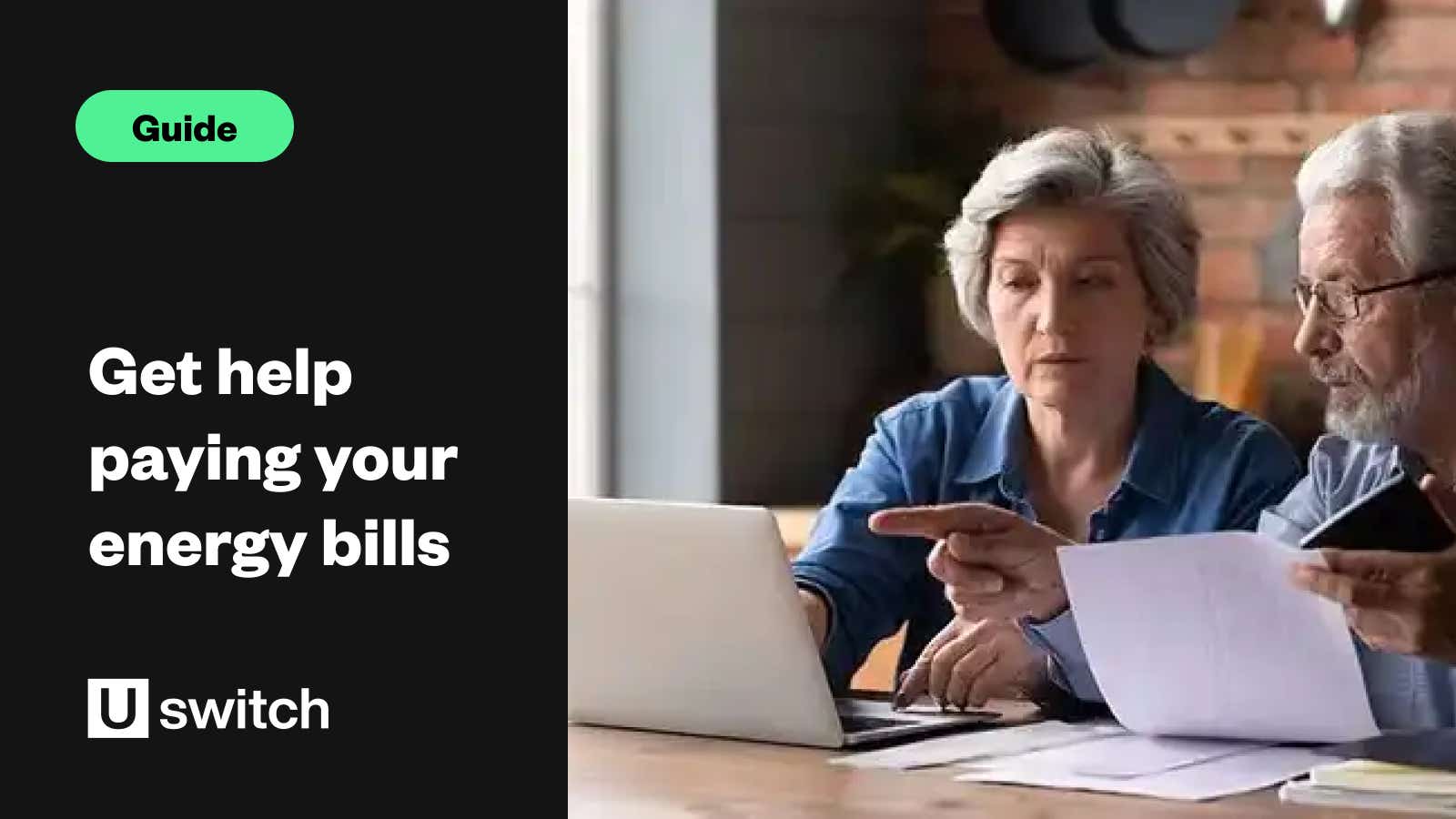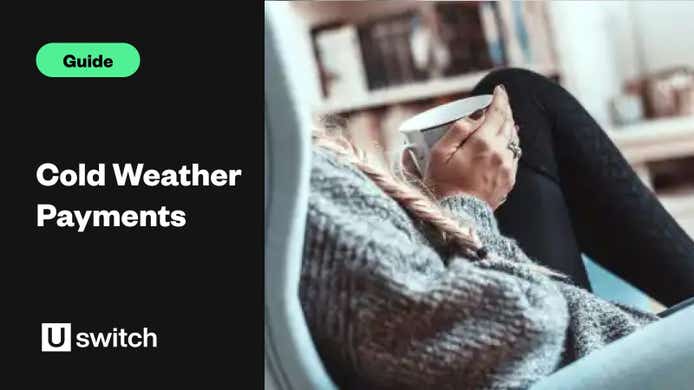Let your supplier know if you need help with energy bills
In most cases, it’s best to get ahead of any problems with paying as early as possible, so let your supplier know that you’re struggling to pay. They’re obligated by Ofgem to help you come up with a workable payment plan, so the earlier they know, the better. There are a range of options they might be able to offer on a case-by-case basis, including:
- More time to pay
- Payment breaks
- Payment reductions
- Access to hardship funds.
However your repayment plan is structured, don’t worry - your energy supply won’t be cut off.
Are you eligible for government discount schemes?
There are plenty of government schemes available to help with energy bills. You can find out more about each scheme below.
Warm Home Discount
If you receive pension credit or one of a number of other benefits, you could be eligible for the government's Warm Home Discount. This scheme is a one-off £150 rebate on the cost of your electricity bill. If you're eligible and your supplier offers the scheme, you'll usually receive the discount automatically between October and March.
Our Warm Home Discount guide provides more information on the scheme.
Winter Fuel Payment
The Winter Fuel Payment is a payment from the government to help the elderly pay for their energy over the winter months. While most people are enrolled automatically you should still check if you’re not sure whether you qualify. If you're aged 60 or over, you may qualify for a Winter Fuel Payment of up to £300 to help you meet the costs of keeping warm in the winter.
To find out more about the payment and to see if you qualify, visit the Uswitch guide to the Winter Fuel Payment.
Cold Weather Payment
The Cold Weather Payment is similar to the Winter Fuel Payment, but only rarely comes into force. The Cold Weather Payment is a £25 payment for each week that the temperature drops below zero Celsius for seven consecutive days. The payment is only available for cold weather snaps that occur between 1 November and 31 March, and households must qualify.
For more information and to see if you qualify, visit the Cold Weather Payment guide page.
Hardship funds
Hardship funds are available from all the bigger suppliers for those who need help with energy bills. These are funds specifically earmarked to help customers in need, and often include grants and other help to upgrade boilers and improve insulation. The application process can be fairly rigorous - it varies between suppliers but at a minimum, you’ll probably need to provide breakdowns of your income and expenditure - so you’ll need to speak to a debt advisor (as a requirement) before applying.
Find out more about the help offered by the bigger energy suppliers below:
- British Gas - as well as all the usual ways of helping people with energy payments, including payment plans, the possibility of installing a prepayment meter and so on, the British Gas Energy Trust may be able to help the most vulnerable customers. Eligible customers could receive up to £1,700 - you also don't have to be a British Gas customer to benefit
- EDF Energy - along with the Priority Services Register, EDF works with various third-party organisations to support customers with managing their money, increasing income through financial benefits and helping with energy debts via a Customer Support Fund
- E.ON Next - in addition to the Priority Services Register, there is an E.ON Next Energy Fund initiative available to help the most vulnerable customers
- Octopus - along with the usual ways of supporting customers who require help managing their bills, Octopus set up a £5 million Octo Assist Fund for customers specifically to help through the winter of 2021-22, which has now been increased to £30 million. It has also implemented schemes to help customers understand their energy usage better and help them through the colder months with donations of electric blankets
- OVO - customers having trouble paying their energy bills are supported in a range of ways, including coming up with payment plans, giving guidance, taking payment directly via schemes like Fuel Direct, providing help via the OVO Energy Fund and more
- ScottishPower - among other measures, ScottishPower offers advice and support when it comes to paying energy bills and devising payment plans. It also has a Hardship Fund designed to help reduce or clear arrears for those customers most in need.
If you're with a supplier not on the list and you're struggling with your bills, it's worth getting in touch with them to see what support they're able to offer. It's worth pointing out that even if you owe your energy supplier money or you are renting your property, you still have the right to switch in order to save money.
Is there any council help with energy bills available?
Councils are able to help customers with energy bills by dipping into the Household Support Fund, which is £421 million available to councils in England to support those most in need between 1 October 2024 and 31 April 2025. It’s not solely an energy fund - it was established to help people as a result of the pandemic, so it could be used for other utilities and essentials. Eligibility depends on the council, so it’s worth getting in touch to see if you qualify.
What charity help with energy bills is available?
There are a number of charities which are available for help and advice if you're struggling to manage your energy bills, as well.
- StepChange - available online or by calling 0800 138 1111, StepChange provides free debt advice to those who need it
- NEA (National Energy Action) - available online or by calling 0800 304 7159, NEA provides free debt advice to those who need it in England and Wales
- Home Energy Scotland - available online or by calling 0808 196 8660, Home Energy Scotland provides free debt advice to those who need it in Scotland, as well as checking your eligibility for funding options such as grants and interest-free loans
- NI Energy Advice - available online or by calling 0800 111 4455, NI Energy Advice provides impartial energy advice for those living in Northern Ireland
- Citizens Advice - available online or by calling 0808 223 1133, Citizens Advice provides impartial energy advice and can also provide dedicated support to the most vulnerable customers
- National Debt Line - available online or by calling 0808 808 4000, National Debt Line provides free and independent debt advice to those living in England, Scotland and Wales
- Age UK - available online or by calling 0800 169 6565 (0800 124 4222 in Scotland), this is the leading charity for helping older people
- Scope - available online or by calling 0808 801 0828, Scope is a charity that offers free energy advice to disabled people on subjects including managing debt, accessing benefits and grants, understanding bills and registering for the Priority Services Register.
These are just some of the charities that can help you find solutions to managing your payments and provide free, expert, non-judgemental and confidential advice and support. There may also be localised initiatives and groups that can help in your specific area, so take a look around to see what might be available to you if you need it.
Debt Respite Scheme
The Debt Respite Scheme is designed to give people struggling with bills some breathing space - if you’re eligible, your creditors will not be allowed to continue with any enforcement activity or add any further fees or interest for the duration. Check out StepChange for more details on applying.
Direct pay from benefits
A government scheme called Fuel Direct allows customers on certain benefits to pay energy debts directly from the benefit payments. The Jobcentre or Pension Centre will be able to set it up for you. Those on Universal Credit will have 5% deducted, while those on other benefits (such as jobseeker’s allowance, income support, pension credit and so on) will have £3.70 deducted each week, plus an additional cost for ongoing usage. If that amount comes to less than 25% of your benefits, though, the payment to the supplier may have already been set up without your permission, so make sure you check.
Are there are any free insulation and boiler grants available?
We know that improving energy efficiency can be key in helping keep heating costs down, but adding insulation or replacing a boiler can be some of the most expensive measures to take. However, there is help available from different organisations for those eligible. If you need help finding any schemes you might be eligible for, take a look at the Simple Energy Advice website, the Energy Saving Trust or Home Energy Scotland.
How can I save energy at home?
Finally, it's also possible to save on your energy bills by cutting back on your usage. We've rounded up some clever ways to save energy in our guide. You can also download Uswitch's free mobile app, which connects to your smart meter and gives you personalised insights into your energy usage. This will show you where you can make positive changes to keep bills down as much as possible. Find out more below.




